#Sherronda J. Brown
Text
I will always advocate for every queer person's right to be a fully autonomous sexual being-and that always must and always will include asexuals. Recognizing the significance of queer sex should not mean that every queer person should be mandated to meet an arbitrary sexual prerequisite in order for their queerness to be affirmed. Centering queerness around sex leaves very little room for queer folks for whom sex is insignificant, or for whom sex is never or rarely possible, or for queer folks who have never had sex before, or for queer folks whose only sexual experiences have been violent. It also leaves a lot of queer people, especially young ones, feeling pressured to have a certain amount or certain type of sex in order to legitimate or prove their queerness to themselves or to someone else.
-Sherronda J. Brown, Refusing compulsory sexuality: A Black Asexual Lens on Our Sex-Obsessed Culture
#asexuality#queer#lgbtq#lgbtqia#pride#ace pride#aseuxal#sherronda j. brown#refusing compulsory sexuality
5K notes
·
View notes
Text
"During my freshman year of college, my psychology professor said, 'Everything is about sex. You are here, at this university, in this class, because you want to have sex...You came to college so that you can go to parties, meet people, and have sex. And so that you can graduate with a degree that will allow you to get a good job so that you can be an eligible dating and marriage prospect, and have sex.' All around me, heads nodded while I sat in confusion, unable to wrap my head around the assertion that everything is about sex.
I was already exceedingly aware of the fact that my lack of investment in seeking out sexual encounters alienated me from my college peers, especially because some of the people closest to me made it clear, in one way or another, that there was something 'abnormal' about this, about me. They viewed me as immature and undeveloped; some even pitied me. I needed to 'grow up' or else I would 'end up alone,' they’d warn. I referred to myself as a 'late bloomer' for many subsequent years, often as a sort of apology or disclaimer. Only after affirming my asexuality did I understand that this 'late bloomer' rhetoric was an unhelpful sentiment and a reinforcement of the same ideologies that caused others to treat me like an abnormality in the first place. One does not 'bloom'—as in, enter into sexual exploration—too late, because there is no set time frame in which one must 'bloom.' One is not required to 'bloom' in this way at all.
Infantilization is a dehumanizing process by which a self-righteous sense of superiority is wielded over someone seen as inferior—assumed to be less mature, more naive, and less worthy of respect. It’s closely akin to and often comes with a heaping side of patronization and condescension, with the infantilized being spoken to and treated as if they are unintelligent, unimportant, deserving of pity, and in need of guidance and education from those who are allegedly more superior and more knowledgeable about the world. This often manifests as the infantilizer regarding themselves as more qualified to make decisions on behalf of and about the infantilized, whom they regard as childlike and incapable of making these determinations on their own...
According to one study, 'Societal Challenge and Depression, Self-Esteem and Self-Concept Clarity in Asexuals,' 69.4 percent of the asexual participants report having had their identity challenged, and the vast majority of those challenges came in the form of infantilization, with phrases like 'you are a late bloomer' or 'you have not met the right person yet' being offered in response to them revealing their asexuality or simply being noticeably disinterested in sex. The association of asexuals with childishness and immaturity reproduces much of the same disregard and dismissive attitudes that are typically directed toward actual children. I understand the infantilization of asexuals as its own brand of gaslighting, in which seeds of doubt are continually planted in our minds and cause many of us to question our experiences, desires, and perception of self.
-Sherronda J. Brown, Refusing Compulsory Sexuality: A Black Asexual Lens on Our Sex-Obsessed Culture
75 notes
·
View notes
Text
Happy International Asexuality Day 2023!
Happy International Asexuality Day! Today we’re celebrating books with main characters all along the ace spectrum, so check out these titles and find your perfect next read! As usual, all links are affiliate and earn a percentage of income for the site, so please use them if you can!
Please note this roundup only features titles that were not previously featured [with covers] in past…
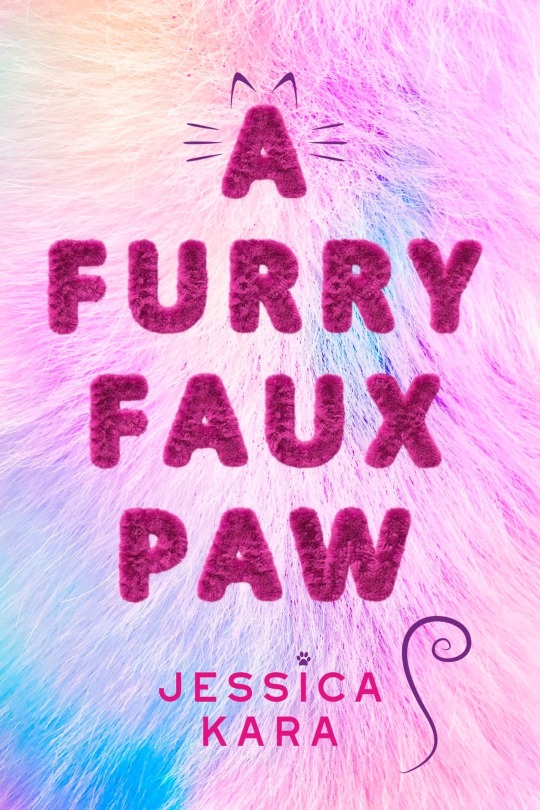
View On WordPress
#Ace-Spec#Ann Zhao#Anna Zabo#Asexual#Asexuality#Dear Wendy#Emma K. Ohland#Here Goes Nothing#Jax Meyer#Just Lizzie#Karen Wilfrid#Love Letters for Joy#Maggie Tokuda-Hall#Racquel Marie#Refusing Compulsory Sexuality: A Black Asexual Lens on Our Sex-Obsessed Culture#Rising from Ash#Sherronda J. Brown#Wren Martin Ruins it All#You Don&039;t Have a Shot
70 notes
·
View notes
Text
When sex is compulsory, it fosters the sense that we are each duty-bound to consistently engage in a certain arbitrary amount of sexual activity—regarding it as something that should be weighed, measured, and quantified, rather than an experience that people should engage in only when all involved have the desire and ability to do so, regardless of how frequent or infrequent that may be. Removing it from the center and the pedestal in our relationships—or, in some cases, our mere existence—would better serve everyone, not only asexuals.
Sherronda J. Brown, Refusing Compulsory Sexuality: A Black Asexual Lens on Our Sex-Obsessed Culture
32 notes
·
View notes
Text
Everything you know about sex and asexuality is (probably) wrong.
The notion that everyone wants sex–and that we all have to have it–is false. It’s intertwined with our ideas about capitalism, race, gender, and queerness. And it impacts the most marginalized among us. For asexual folks, it means that ace and A-spec identity is often defined by a queerness that’s not queer enough, seen through a lens of perceived lack: lack of pleasure, connection, joy, maturity, and even humanity.
In this exploration of what it means to be Black and asexual in America today, Sherronda J. Brown offers new perspectives on asexuality. She takes an incisive look at how anti-Blackness, white supremacy, patriarchy, heteronormativity, and capitalism enact harm against asexual people, contextualizing acephobia within a racial framework in the first book of its kind. Brown advocates for the “A” in LGBTQIA+, affirming that to be asexual is to be queer–despite the gatekeeping and denial that often says otherwise.
With chapters on desire, f*ckability, utility, refusal, and possibilities, Refusing Compulsory Sexuality discusses topics of deep relevance to ace and a-spec communities. It centers the Black asexual experience–and demands visibility in a world that pathologizes and denies asexuality, denigrates queerness, and specifically sexualizes Black people.
#Refusing Compulsory Sexuality#Sherronda J. Brown#adult books#essays#asexual#ace rep#asexuality#compulsory sexuality#black rep#poc rep#daily book#nonfiction#lgbt nonfiction#lgbtqia#bookblr
14 notes
·
View notes
Text
last book read + last stethoscope used, part 4
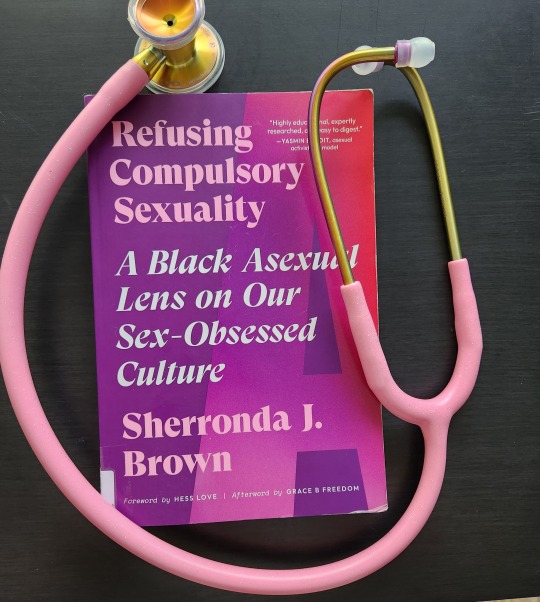
I was planning to post this later, but then I remembered that it's International Asexuality Day! :D
The stethoscope: MDF Procardial Titanium Cardiology scope in light pink glitter and kaleidoscope
The book: Sherronda J. Brown’s Refusing Compulsory Sexuality: A Black Asexual Lens on Our Sex-Obsessed Culture. Brown opens with a Toni Morrison quote: “If there’s a book you want to read, but it hasn’t been written yet, then you must write it.” I admire Brown for doing just that. As far as I know, there is nothing else out there like this book, and it’s both a long time coming and far ahead of its time. How many people are ready to talk about the asexual experience for Black Americans? That’s truly a rhetorical question that I'm not qualified to attempt to answer anyhow, since I'm white. I’ve never seen someone put into words how a combination of anti-Blackness, capitalism, white supremacy, patriarchal attitudes, and heteronormativity work together to make understanding, disclosing, describing, and living one’s ace identity that much more difficult. I only have to battle some of those. I will admit that I was disappointed with Brown’s academic style of writing—I was hoping for something more casual, maybe memoir-esque. That said, there’s an (all too brief) section in the back with quotes from black aces discussing their experiences. She devotes an entire chapter to others’ speculations about the identities of Langston Hughes and Octavia Butler, and implications of the assumptions made about them. I’m not sure about an entire chapter on that subject, but I’m always happy to read anything about Octavia Butler, so her inclusion was a nice (and fitting) surprise.
#books#reading#cardiophilia#cardiophile#MDF stethoscopes#asexuality#international asexuality day#Sherronda J. Brown#Refusing Compulsory Sexuality#heteronormativity#racism#anti-Blackness#asexual literature#asexual reads#lgbtq#lgbtq+#lgbtqia#black asexuality#stethoscopes#lbls
8 notes
·
View notes
Text

this book is it yall. absolutely brilliant. 11/10. must read.
14 notes
·
View notes
Text
5 Favourite Books and Films | Summer 2022 Releases
1. Refusing Compulsory Sexuality by Sherronda J. Brown ☆ ☆ ☆ ☆ ☆
In this exploration of what it means to be Black and asexual in America today, Sherronda J. Brown offers new perspectives on asexuality. She takes an incisive look at how anti-Blackness, white supremacy, patriarchy, heteronormativity, and capitalism enact harm against asexual people, contextualizing acephobia within a racial framework in the first book of its kind. (Storygraph)
Non-fiction books are a real struggle for me, and finishing one takes me quite some time and effort. Refusing Compulsory Sexuality did something that most non-fiction fails to do: it completely changed the way I look at the world (for better). It was an incredible and vital read that will stick with me for the longest time. Full review can be found here.
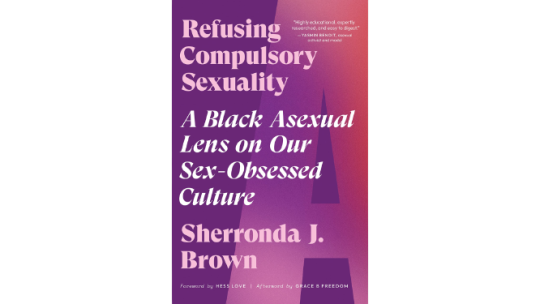
2. Nope (2022) dir Jordan Peele ☆ ☆ ☆ ☆ ☆
Residents in a lonely gulch of inland California bear witness to an uncanny, chilling discovery. (Letterboxd)
Another work that stuck with me for too long (possibly because I had the soundtrack on repeat) is Peele’s latest gift to the world. Calling it a gift isn’t too much praise; I finished watching thinking it was great and after letting it sit with me for another hour, I realised just how incredible it was. By far one of my favourite watches of the year of which my full review can be found here.
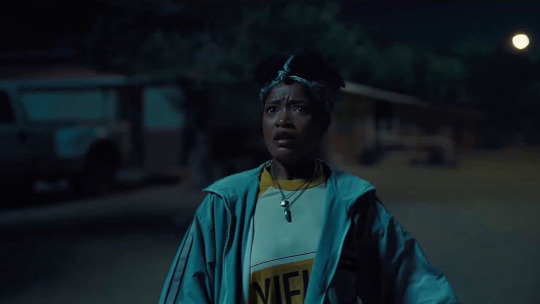
3. I’m Glad My Mom Died by Jennette McCurdy ☆ ☆ ☆ ☆ ☆
A heartbreaking and hilarious memoir by iCarly and Sam & Cat star Jennette McCurdy about her struggles as a former child actor—including eating disorders, addiction, and a complicated relationship with her overbearing mother—and how she retook control of her life. (Storygraph)
Recently finished the audiobook and it is worth every five star review. It was a really raw memoir that had my mouth fall open multiple times throughout listening. McCurdy narrating her own story definitely added to the overall life story and I’d be lying if I said I didn’t shed some tears.
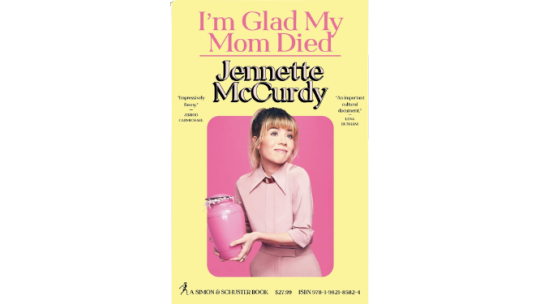
4. Decision to Leave (2022) dir. Park Chan-wook ☆ ☆ ☆ ☆
Hae-Joon, a seasoned detective, investigates the suspicious death of a man on a mountaintop. Soon, he begins to suspect Seo-rae, the deceased’s wife, while being unsettled by his attraction to her. (Letterboxd)
Decision to Leave was the type of film that made me doubt the high praise around it until I got to the very end. The director and cast are all very talented and it was an interesting watch that I hope to see pop up during awards season. Full review can be found here.
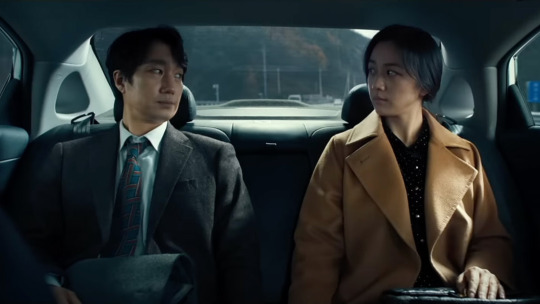
5. Not Okay (2022) dir. Quinn Shephard ☆ ☆ ☆ ☆
An ambitious young woman, desperate for followers and fame, fakes a trip to Paris to up her social media presence. When a terrifying incident takes place in the real world and becomes part of her imaginary trip, her white lie becomes a moral quandary that offers her all the attention she’s wanted. (Letterboxd)
Talking about solid endings, Not Okay was the final film I watched over the summer and its ending was truly a make it or break it situation. Thankfully, it was the former and it pleasantly surprised me overall. There’s no shying away from an unlikeable protagonist and creating an ending that some people deem “not finished” but that I found a breath of fresh air in a world of very cliché film endings. It certainly caught my attention.

#review blog#books#bookblr#films#filmblr#movies#movieblr#summer reads#summer movies#summer round-up#refusing compulsory sexuality#sherronda j. brown#non-fiction#lgbtq#asexuality#nope#nope 2022#nope (2022)#jordan peele#horror#I'm glad my mom died#jennette mccurdy#memoir#decision to leave#decision to leave 2022
3 notes
·
View notes
Link
[CW: This essay contains discussions of sexual, reproductive, and state violence, as well as miscarriages]
The Supreme Court is poised to overturn Roe v. Wade. In the leaked draft majority opinion, Justice Samuel Alito declares, “the Constitution does not confer a right to abortion. Roe and Casey must be overruled, and the authority to regulate abortion must be returned to the people and their elected representatives.” But this is not about returning authority to regulate abortion to the people; it is only about giving more power and reproductive control to the nation-state.
Now that the Supreme Court is threatening to subject white people to the same reproductive injustices that BIPOC have endured for centuries, many have resorted to comparing the U.S. to The Handmaid’s Tale which seems to be the only frame of reference many have for understanding reproductive control and rights. The show and the original novel work by excavating the histories of sexual and reproductive violences against Black, Indigenous, and people of color (BIPOC) and applying them to white women in a dystopian landscape, conceiving of the story as if it is merely a mere possibile future rather than a our true history. BIPOC in the U.S. have always lived in a dystopia.
White feminists love The Handmaid’s Tale as much as they fear it. But using Gilead to inform understandings of reproductive control is an incomplete framework because it does not include a racial or reproductive justice analysis—defined by the SisterSong Women of Color Reproductive Justice Collective as “the human right to maintain personal bodily autonomy, have children, not have children, and parent the children we have in safe and sustainable communities.” We not only deserve the right to make our own decisions concerning whether or not to have children, but we also deserve the ability to nurture any children we do have in safe communities, without the interference of the state, and without police killing, abusing, sexually assaulting, and terrorizing us.
…
The COVID-19 pandemic brought mass death, disabling, and grief. In the midst of immense loss, we have also watched as fascists have attempted to legislate transness out of existence and further institutionalize anti-Blackness through book bans and faux outrage against what they inaccurately call “critical race theory.” Simultaneously, some of the harshest abortion bans have taken hold in multiple states, all purportedly on the basis of the sanctity of life. This is not a coincidence. The conservative claim to be concerned with life is a transparent lie. What the state is more concerned with is necropolitics: social and political power over death, dictating who may live and who must die in service of the state. Addressing both reproductive rights and justice requires an understanding of governmentality and how capitalism, state violence, and reproductive control operate in tandem, as the most marginalized people are used as cannon fodder in the endeavor to create and maintain a white supremacist police state.
Despite pushes for more gender-inclusive language across the reproductive rights movement, the most popular and accepted argument within public discourse is that abortion bans are about “women’s bodies” and men’s desire to control them. International organizations like the United Nations still refer to anti-abortion regulations as issues pertaining to the reproductive autonomy of “women and girls.” We cannot allow that to be the totality of the response to attacks on reproductive rights, especially because non-white women have historically been excluded from the very definition of womanhood to uphold the myth of white superiority, and many of those ideologies remain.
…
Reproductive rights and justice are matters that cannot be divorced from the carceral system, voting rights, state violence, over-policing, and economic inequality. The criminalization of abortion aligns with capitalist interests and is one of many tactics meant to help expand the state’s control over the bodies of predominantly poor BIPOC, an extension of the long history of racialized reproductive violence, coercion, and abuse—whether people have been forcibly sterilized, forced to reproduce, effectively killed, left to suffer and die, or put to death.
Abortion is a means of freedom that a white supremacist, capitalist state cannot allow, because controlling reproduction is key to controlling so much more. Abortion bans are meant to keep poor people trapped in poverty for generations. More births means more workers, more productivity, more cogs in the capitalist machine. More people living in poverty means more people to fight wars, more people to help maintain colonial and imperial rule. But criminalizing abortion is first and foremost about obedience, about creating docile people and bodies, and enshrining the ability to control people’s bodies as property of the state. For the state to have total power, it must control the production of state subjects. It’s physiological and psychological warfare, intended to hit the already most marginalized the hardest. The wealthy will always have access to safe abortions, just like they will have access to clean water, and healthy food, and safe neighborhoods, and healthcare, and ways to lessen the blow of climate change on their lives. Abortion bans are about maintaining that kind of power.
1 note
·
View note
Text
GOT A BOOK REC FOR MY ACES OUT THERE (especially my fellow white aces)
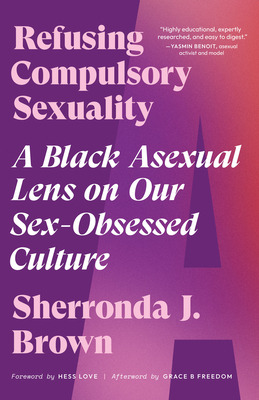
I heard about Refusing Compulsory Sexuality by Sherronda Brown from tiktok, not gonna lie, and I knew I had to read it. I just finished it, and I loved it.
It has a fantastic discussion of asexuality, racism, and sexism (especially the intersection thereof). Sherronda is a wonderful writer and does a great job exploring not only their experience but discussing the history of black people’s sexuality and aceness in a way that is educational and very interesting to read.
It also has a timeline about asexuality dating back to 1855 which I have never seen one that dates back that far before. The amount of research that must have taken floors me, and I love it.
They also sprinkle in really cool tidbits throughout the book that I’m not going to spoil except for my favorite one. Apparently, ace people are 2.4-2.5 times more likely to be left handed than the general population. (And I’m a left handed ace)
I’m hoping to buy myself a copy soon so I can mark it up like I did my copy of Ace by Angela Chen. I checked this out from the library.
So go see if your local library has a copy or if you can buy a copy!
#ace#asexuality#book#booklr#book rec#book review#ace pride#asexual#asexual pride#lgbt#lgbtq#lgbt pride#lgbtq positivity#lgbtqa#sherronda j brown#sherronda brown#book recommendations#book recommendation
1K notes
·
View notes
Note
"I wish more aro or ace books were good" REAL. I'm not a huge reader these days (a victim of the "read several books a day as a kid to easily distractable ADHD adult" pipeline :/, I'm working on it though) but I stick to mostly nonfiction when I do read, because most fiction is too amatonormative for my tastes and most aspec fiction is. Well. I already struggle with reading books, I need to be able to actually get into them to have a hope of finishing them.
The biggest mood there. Kinda all of it :') Reading books takes so much longer and more Effort than it used to when I inhaled books when I was 12... and SO many books that market themselves on the Aro or Ace Rep are just. They just aren't good books. Most aren't Morally Objectionable or anything, they're just not good books.
I feel like it's normal growing pains for a Queer Identity... god knows how many books I read of high schoolers going "It's okay... to be gay, actually!" when I was in middle/high school--but I kind of wish we could hurry up to the point where there are plenty of good ace and aro ones to choose from. (There are some good ones! The Murderbot Diaries, Ancillary Justice, Michelle Kan's novelettes, Polenth Blake's work, Darcie Little Badger's entire ouvre... I love those. And I haven't read The Bone People but it won a bunch of Real Literary Awards, and Firebreak I've been told is really up my alley... but I have. also read a bunch of aro and ace books that were just mediocre-to-bad.)
#asks#astriiformes#always on the lookout for recommendations of things that people Read And Liked not just found on a list#also for nonfiction: Sherronda J. Brown's 'Refusing Compulsory Sexuality' is SO good. Particularly asexual focused but from an aro-ace POV#and it's Really Good#books
26 notes
·
View notes
Text
When we don't acknowledge how the uses of sex can and sometimes do align with white supremacy and anti-Blackness, people can easily convince themselves (and others) that having sex and reproducing with Black people, or at least expressing a desire to do so, absolves them from of their anti-Blackness. They feel confident in using their engagement with Black desirability and sex as a shield against any accusations of racist behavior. Moreover, they offer it up as evidence of their anti-racism, or support for Black lives, or political liberalism. The fetishization and hypersexualization of Black people continue to provide a mask for the dehumanization of Blackness itself, but so many have swallowed the lie that white desire is somehow evidence of black of care for Black life. White supremacy is always invested in segmenting and reducing us into easily consumable pieces for its pleasure. We become only our Black skin, only a Black phallus, only a Black pussy, only a Black ass, only a Black body.
-Sherronda J. Brown, Refusing Compulsory Sexuality: A Black Asexual Lens on Our Sex-Obsessed Culture
#sherronda j. brown#refusing compulsory sexuality#asexuality#racism#anti racism#idk what other tags to use#i used asexuality because its about how racism and compulsory sexuality intersect#i highly recommend this book
13 notes
·
View notes
Text
"Asexuals being assumed as heterosexual by others, based on heteronormative beliefs, does not amount to asexuals 'passing for straight.' We are assumed to be heterosexual because heterosexuality is compulsorily seen as the default orientation, because people continually fail to learn about asexuality and asexual people when presented with opportunities to do so, and because they often refuse to accept our asexuality as a valid orientation to begin with. What other people choose to see—and what they choose not to believe—from their own biased perspective is not the responsibility or fault of asexuals. Being invisibilized, constantly wading through the expectations and projections of compulsory (hetero)sexuality, and having others consistently assert themselves as the authorities on our lives, experiences, and identities while refusing us the right to have this authority ourselves is not and never will be 'passing for straight.'
Acephobic exclusionists also argue that any discrimination asexuals experience is only because we can be and sometimes are mistaken for gay or lesbian. With this argument, they veer incredibly close to a vital point, but ultimately fail to grasp it. If and when asexuals are mistakenly read as gay or lesbian, it is because our asexuality—our failure to perform a 'normal' heterosexuality—has signaled that there is something nonheteronormative about us; it has signaled our queerness. The fact that those recognizing our queerness can only read it as gay or lesbian, rather than as asexual, is because asexuality is constantly invalidated while gay and lesbian are largely seen as the only valid queer identities. Asexuality, along with other nonmonosexual identities, would be more recognizable if it were not so strongly regarded as an impossible or wrong way to exist...
None of this is 'straight-passing privilege.' It’s cisheteronormativity and compulsory sexuality being violently projected onto us. It’s rape culture. It’s a lifetime of people feeling sexually entitled and taking their anger out on us when we don’t perform what they consider to be 'normal' sexual behavior. It’s people hating us because they know we are not like them. It’s acephobia. I have observed queer allosexuals openly admit to their active discrimination against asexuals, only to assert mere moments later that acephobia does not exist and that aces cannot be queer. Meanwhile, others will acknowledge the existence of acephobia and its impact on asexual people’s lives, only to then attempt to gatekeep asexuals from claiming any kind of queerness whatsoever. Contradiction after contradiction continually arise in these conversations and efforts to bar us from queerness."
-Sherronda J. Brown, Refusing Compulsory Sexuality: A Black Asexual Lens on Our Sex-Obsessed Culture
18 notes
·
View notes
Text
Hey have you guys read "Refusing Compulsory Sexuality; A Black Asexual Lens on Our Sex-Obsessed Culture" by Sherronda J. Brown, I really think you should read "Refusing Compulsory Sexuality; A Black Asexual Lens on Our Sex-Obsessed Culture" by Sherronda J. Brown
#please you guys it's very informative#asexual#it's also very inclusive of trans people please you guys please#queer#lgbtq#sherronda j brown
18 notes
·
View notes
Text
It’s time for queer communities to abandon the hierarchy of trauma that supports acephobia with the myth that asexuals do not have “enough” trauma related to our sexual identity to be considered queer. Trauma is not a factor by which queerness should be measured.
Sherronda J. Brown, Refusing Compulsory Sexuality: A Black Asexual Lens on Our Sex-Obsessed Culture
16 notes
·
View notes
Text
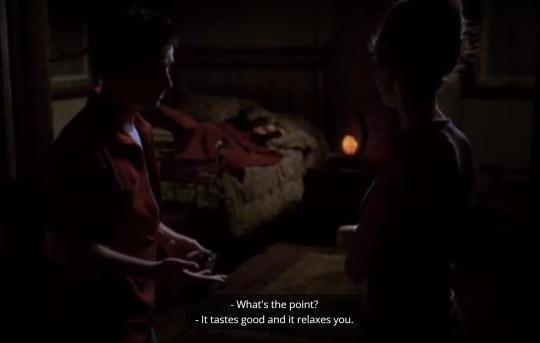

this is the very definition of "if you get me you get me" but this exchange is an ace cordy moment. to me
#buffyverse#angel the series#ifer rambles#thinking about her this ace week......#something something not drinking alcohol as an analogue to asexuality#like i can't relate i drink like a fucking fish but there's Something there#posts that i think sherronda j brown would understand perfectly if they saw my tumblr blog
13 notes
·
View notes